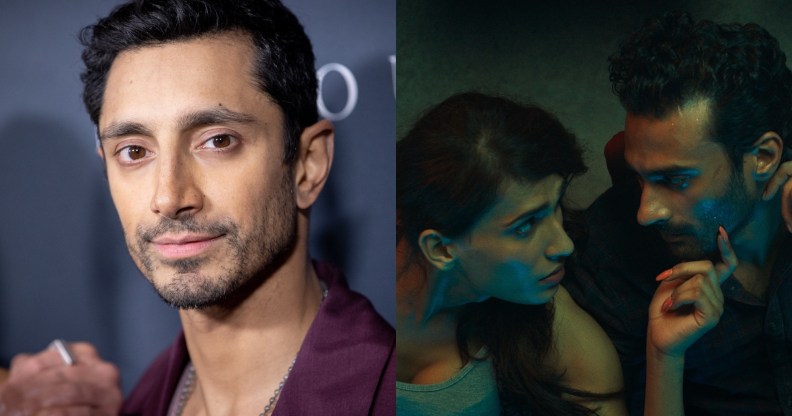Riz Ahmed had no concerns producing trans love story Joyland for one simple but brilliant reason

Riz Ahmed is an executive producer on Pakistani film Joyland. (Getty)
Oscar-winning actor Riz Ahmed has opened up about his decision to board acclaimed Pakistani transgender film Joyland as executive producer.
The boundary-breaking film follows Haider (Ali Junejo), a struggling husband who joins an erotic dance company and soon gets caught up in an affair with transgender starlet, Biba (Alina Khan).
Through the lens of this tender-but-tragic love affair, the story explores women’s liberation, generational taboo, mental health and the rights of the gender-non-conforming community in Pakistan.
It has seen astonishing success, from winning the jury and Queer Palm prizes at last year’s Cannes Film Festival to becoming the first of its kind to be shortlisted for an Oscar.
However, given its controversial nature, the movie had to overcome major barriers, including fighting a ban from the censor board in Pakistan and receiving threats from bigots. It was around this time that big Pakistani names started to support the project, including actor Ahmed and Nobel Peace Prize laureate and education activist Malala Yousafzai.
Ahmed announced his role as executive producer in January through his production company Left Handed Films, which aims to platform stories “you haven’t heard before [or] seen before”.
In an Instagram post, he explained: “This film so masterfully breaks our hearts. [Director] Saim Sadiq’s filmmaking is understated and gut-wrenching. His writing is consistently unexpected and every scene is so elegantly composed but still bursting with raw performances.”
Despite the controversy surrounding the film, Ahmed told Metro that he had no concerns about getting involved in the project, as “transgender people have been a very established part of South Asian culture for centuries and centuries”.
“They can often hold a quite a paradoxical position in the culture,” he explained. “They are visible and commonplace. It’s been like that for hundreds of years.
“And they almost occupy a privileged position, culturally and spiritually speaking, in that they’re thought to be able to kind of bless or curse you, if you rub them up the wrong or right way.”
Ahmed hopes films like Joyland will advance their rights of a group that also has a history of documented hardships, discrimination and poor representation on screen.
“You can have ‘TG’ or ‘third gender’ or ‘transgender’ or ‘non-binary’ on your ID card in Pakistan, and that’s been the case for many years,” he said.

“There have been transgender newsreaders and film stars in Pakistan for many years. Hopefully, the more different kinds of stories we can see from different parts of the world, the more it will open our minds and our hearts to different ways of doing things.”
Back when the Joyland cast and crew were campaigning for the nationwide ban to be lifted, Yousafzai penned a thought-provoking letter in Variety explaining the significance of the film.
“When a film like Sadiq’s raises up working-class or trans characters, and women struggling to assert themselves against rigid and very real social norms, we turn away,” she wrote.
“In doing so, we reject the spectacular talent of Pakistani artists that a film like Joyland represents.”
The ban has since been lifted across Pakistan except for in the state of Punjab.
Joyland is released in UK cinemas on Friday (24 February).
How did this story make you feel?

